
HOLISTIC GROWTH FROM YOUR LIVING ROOM:
Invite a transformative experience through music into your home right here and surrounding neighborhoods.
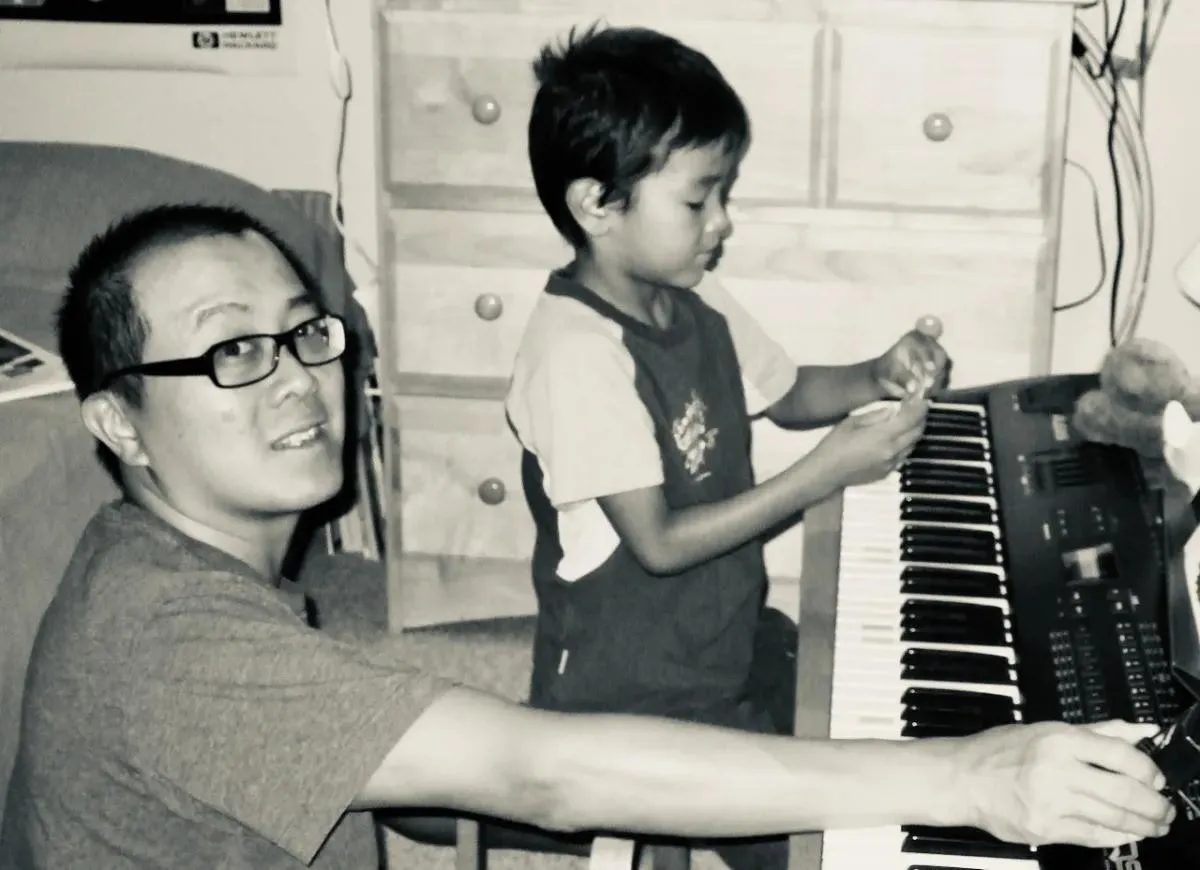
Our Story
Hi, I’m Andrew! A Park Slope Dad who’s thought a lot about helping children find their unique gift, or what I like to call, “their thing.”
I discovered music can be a great path for personal development and discovery, even if they never become a professional musician. And there’s now tons of studies proving the brain development benefits of learning an instrument.
But how did I get here? It’s the early 2000s and my son Alejandro is in preschool. It’s a lovely school and yet, I can’t leave the classroom. Alejandro has deep attachment issues. He is so terrified that I have to sit in the corner of the class.
Why Our In-Home Holistic Approach Is Perfect
Formerly known as Park Slope Music Lessons, this location is the birthplace of the Musicolor Method. Founded in 2007 by Andrew Ingkavet, the school has experienced significant growth over the past 16+ years. With a team of over 24 teachers, thousands of students have been inspired, empowered, and filled with the joy of music
Made for Tiny Hands, Big Imagination
Through the Musicolor Method, we merge playful melodies with pivotal life skills ensuring your child looks forward to every lesson.
Safe, Comfortable Learning Environment
Lessons in the familiar surrounds of home mean a relaxed child, optimal for absorbing both music and life skills.
Routine Reinvention in Their Space
Inculcating values of discipline and routine becomes more effective in a familiar setting, turning daily home routines into learning experiences.
From Living Room to World Stage
Early introduction to music fosters confidence, helping them express, communicate, and shite even beyond the piano.
A Love for Learning Starts Young
By making lessons a joyous home event, we inspire a lifelong curiosity and love for learning.
The Musicolor Method:
Perfectly Tuned for Ages 4+, Right at Home
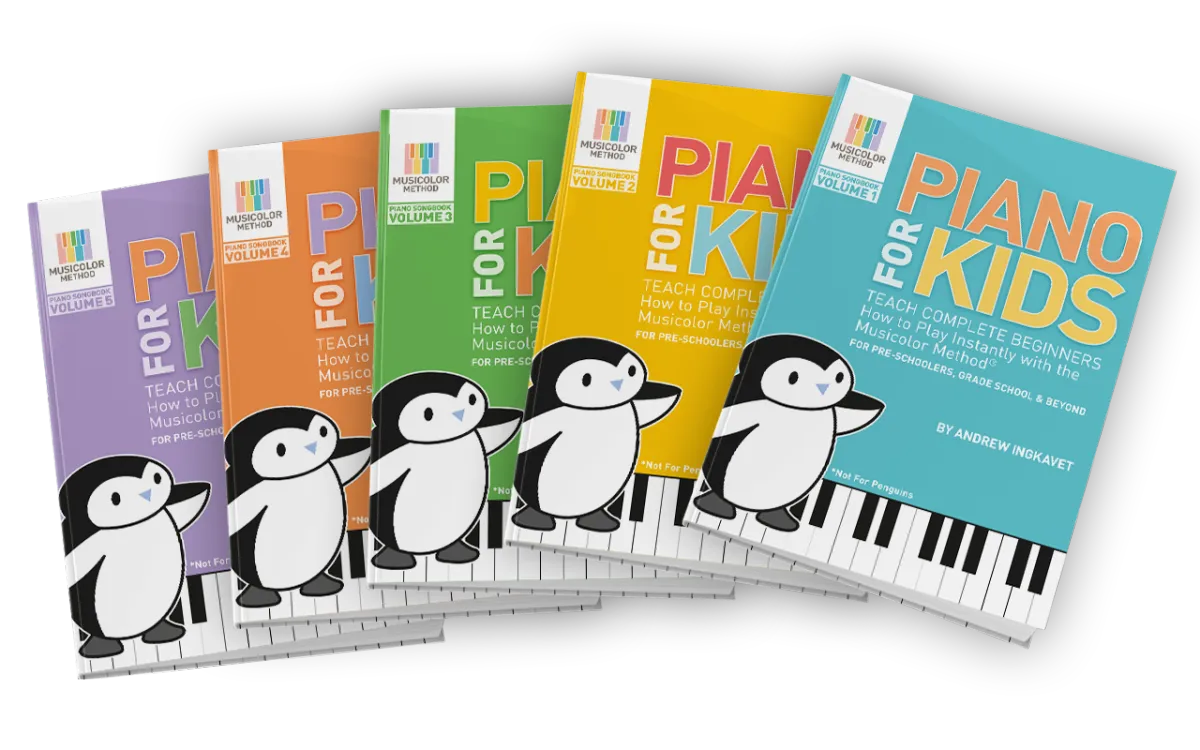
Lessons at Musicolor Method Upper West
1-to-1 lessons
PIANO
VOICE
GUITAR
UKULELE
BASS
FLUTE
SAXOPHONE
CLARINET
TRUMPET
TROMBONE
FLUGELHORN
DRUMS PERCUSSION
SONGWRITING
Parents Share Their Stories
"My daughter has been a student at Park Slope Music Lessons for years and it's been a fabulous experience. Piano has helped provide her with a different approach to thinking and learning and she truly enjoys it. The instructors are fantastic and do an amazing job connecting with each student and tailoring their approach to their individual needs. Thank you so much!"
- Kevin DeNoia
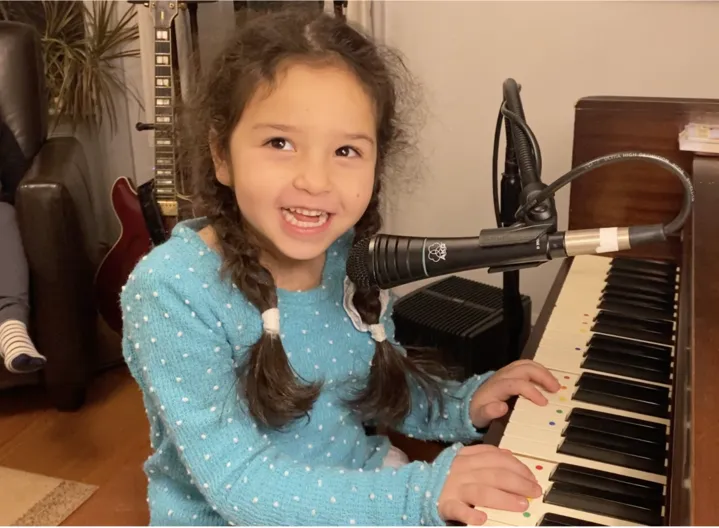
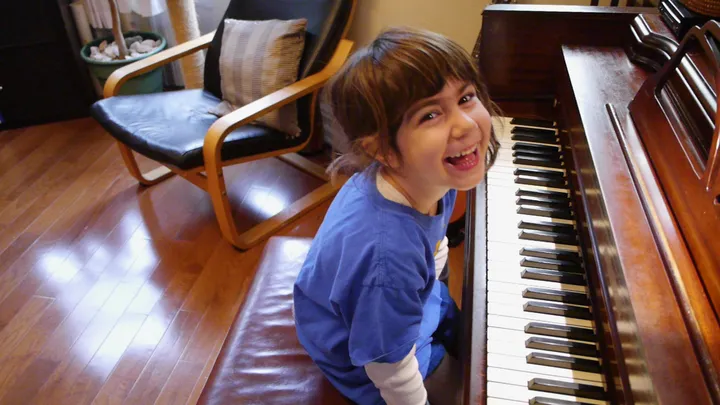
"My daughter has never sought to play music professionally, so her continued commitment to her weekly lessons for 12+ years (even with her busy high school schedule), is a testament to how much she truly enjoys being part of the Park Slope Music Lessons family!"
- Caroline Lee
Upcoming Events
Our teachers are not just mentors and instructors; they're live performers too!
Imagine seeing your child's teacher, whom they admire, rocking out on stage! It's an experience that truly bridges the gap between classroom learning and real-world musicianship.
Here’s a calendar of upcoming gigs, concerts, album releases as well as important dates for the school.
The Symphony of Early Childhood Awaits:
Music has the power to change brains at an early age. Activate your child's genius today!
Contact Us
Send us a message using the ChatBot below right.
Our Blog
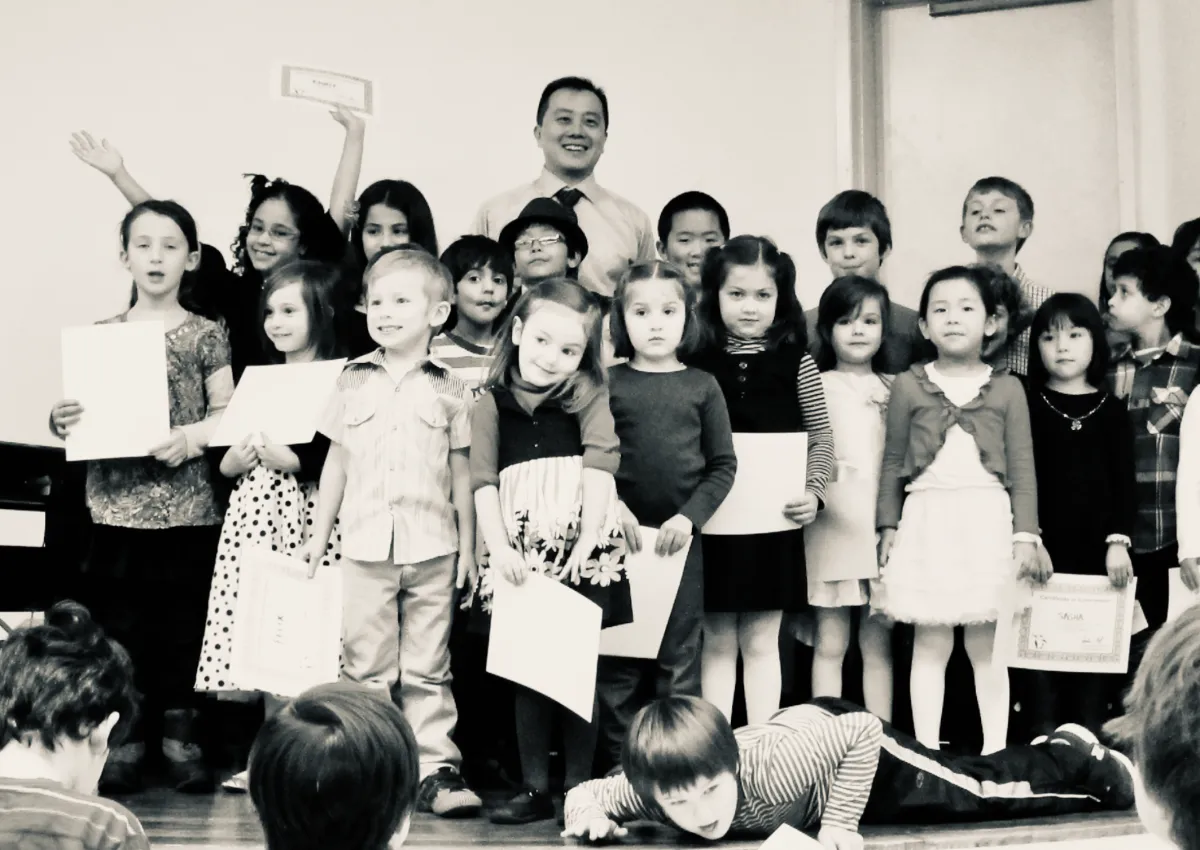
Why music recitals are a vital part of every child’s life
At our music schools, we host two recital concerts each year. However, I often hear inquiries about their value and importance. Allow me to clarify.
Why We Hold Recital Concerts
Public performance, including speaking, is among the most valuable and highly coveted skills in the professional world. The ability to articulate thoughts and ideas clearly and confidently in front of an audience is a skill that many strive to master. Overcoming the fear associated with this can dramatically shift the course of one's life, opening up avenues for personal and professional growth that were previously unthinkable.
Winter Recital 2012 in Carroll Gardens public library
Reflecting back on my childhood, I remember the crippling fear that would wash over me when tasked with standing in front of a group. As a young boy, I was acutely aware of how different I was from everyone else around me. I was the sole Asian kid in my community, the first "foreigner" that many of my neighbors had ever interacted with. This distinction made me hesitant to draw any more attention to myself than necessary.
However, as time passed, I found myself gradually becoming more comfortable with the idea of speaking at the front of a room. The initial fear and discomfort slowly began to recede, replaced by a growing sense of confidence and ease. Like so many things in life, becoming comfortable with public speaking was a matter of acclimatization, of adjusting to a new normal that was initially outside of my comfort zone.
Athletes & Performance Anxiety
I heard a story on NPR about performance anxiety. This study had researchers interviewing Olympic athletes about how they felt before an important event. Every single one of them said, "No I was not nervous. I felt excited." What the researchers concluded was that the emotional feeling of nervousness had been reframed. Instead of interpreting these feelings as nervousness, it became excitement.
Cognitive Reframing
This idea of reframing is extremely powerful. In psychology it’s called cognitive reframing.
Cognitive reframing is a psychological technique that consists of identifying and then disputing irrational or maladaptive thoughts. Reframing is a way of viewing and experiencing events, ideas, concepts and emotions to find more positive alternatives. In the context of cognitive therapy, cognitive reframing is referred to as cognitive restructuring. Cognitive reframing, on the other hand, refers to the process as it occurs either voluntarily or automatically in all settings. - Wikipedia
This is something that we should consciously teach to all educators, parents, and leaders. Certain successful individuals seem to effortlessly move through life attracting opportunities and getting past obstacles.
I recently saw a video (see below) about an ex-Navy Seal coaching an ultramarathon runner. It’s an amazing example of cognitive reframing. “Hey, we don’t get tired!”
Life Happens To All Of Us
And, in reality, we all are able to do this. Life happens to all of us! Instead of reacting in our old ways, we can reframe consciously for better results. It’s the quality of our reaction that proves our mettle.
Subconsciously, I must have known that I needed to get over this fear, too. In my Boy Scout troop, I was elected Senior Patrol Leader where I was forced to lead the group. Talk about scary!
I also participated in constant public performance with my school band, chorus, jazz ensemble, marching band, and eventually my own rock bands.
I took on several door-to-door sales jobs. That was really hard! But over time, I began to realize that I could adjust how I felt. This “no” meant I was closer to a “yes.”
New Horizons Appear
As my confidence grew, I began to have opportunities appear which I never would have even considered before. I started to stretch my wings and even went out on a limb to audition as an actor. Lo and behold, I was accepted to a young theater company!
But as every actor knows, it’s a hard life filled with more rejection than acceptance. Reframing these rejections as just “steps on the path,” made it possible to live forward without soul-crushing depression!
Say Yes
The more I reframed, the more I could accept new opportunities. The more I could say, “Yes.”
So I encourage you all to say, “Yes” to more things in your life and to teach your children the same.
Joseph Campbell, the author, referenced an idea from Schopenhauer. This concept proposes that our dreams are created by an unconscious part of us, much like how our inner will guides our lives. As seemingly random encounters become significant components of our lives, we also unknowingly play a similar part in the lives of others. In retrospect, it resembles an elegantly composed grand symphony.
So bravo to your children for learning to perform in public, asserting their abilities and ideas, and sharing them with the world! May their song resonate around the globe.
Video example of cognitive reframing
Are You Ready to Embrace Holistic Growth for Your Little One?
Schedule a Call Now and we'll learn more about your child, their learning styles, preferences and schedule to match you with the perfect in-home music teacher.
"My son started piano lessons with Andrew & co. when he was 4 1/2. The Musicolor Method really made learning to read and play music possible for home at that age."
- Sarah Kornbluth
Directory

Formerly Park Slope Music Lessons



Formerly Park Slope Music Lessons
.
© 2007 - 2024 - 300 Monks, LLC, dba as Musicolor Method. All rights reserved. Unauthorized use prohibited.


